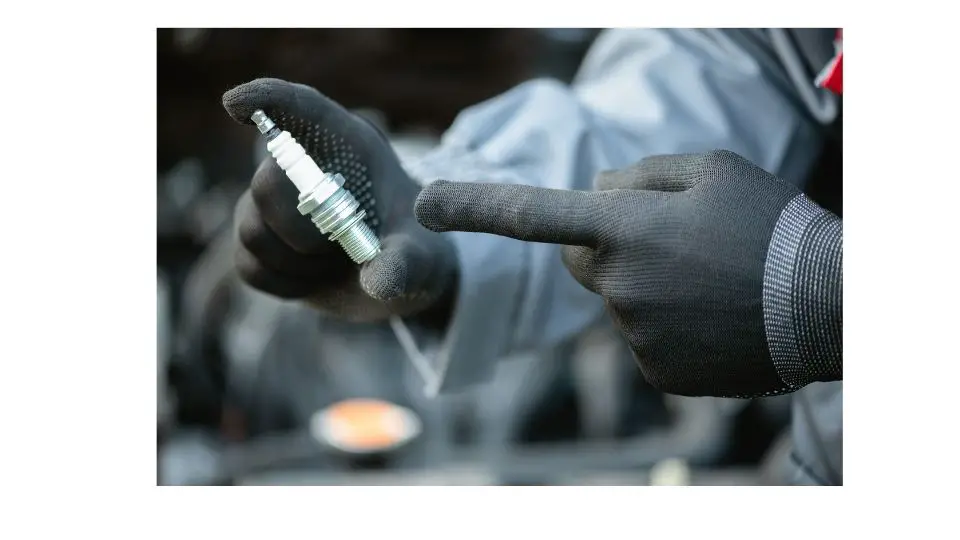Spark plugs are crucial to the engine because they ignite the air and fuel mixture inside the cylinder, which makes a flame rise up and turn the piston.
This helps generate the power required by the engine. Spark plugs can fail if they get dirty or have too much time between changes.
In this article we are going to look at does spark plugs have any influence on the performance of your vehicle, let’s dive in.
Do Spark Plugs Increase Performance?
Spark plugs are small but vital components of your vehicle. Without spark plugs, there is no way to fire up your engine and get your car moving. Worn-out or failing spark plugs can cause misfire and performance loss. If you notice that your vehicle is not performing as well as it used to, then one of the first things you should check is the condition of your spark plugs.
You may be wondering if new spark plugs will actually increase performance. The answer is yes. In most cases, when you install new spark plugs, you will notice a quicker throttle response from your vehicle, faster acceleration, and improved performance overall.
Spark plugs can also affect your gas mileage if they are worn out or failing. When your engine misfires, it burns more gas than it should and can cause a decrease in performance and fuel economy.
Can Spark Plugs Increase Horsepower?
So, can spark plugs really increase horsepower? Yes, they can, but not by a large margin, usually only 2-4% of the actual stock engine capacity.
A new set of spark plugs can restore some power and improve fuel efficiency. However, spark plugs won’t make a huge difference in horsepower if other components are already worn out or if you have performance-related issues such as a misfire from low compression.
Also, the horsepower gain is relatively small for example let’s say the standard engine output is 200 horsepower, by installing performance spark plugs you can expect a 2-3 hp extra boost in terms of horsepower which isn’t much really, but your vehicle will perform way better.
The good news is that spark plugs are affordable and very easy to replace yourself.
Can Spark Plugs Make Your Car Faster?
In short, Yes, as mentioned above when spark plugs are still new they provide a quicker spark and as a result improve overall performance and make the car respond faster to accelaration.
The spark plugs are small, inexpensive parts that can have a significant effect on the performance of your engine. The spark plug has a big job to do. It must ignite the fuel-air mixture with an electric spark while withstanding the heat and pressure inside the combustion chamber. It must be able to carry away the heat from the firing tip while remaining electrically insulated from the cylinder head.
Over time, spark plugs can become fouled and corroded as they burn off deposits and oil vapors, or they may wear out due to vibration or excessive heat. They can eventually break apart internally and stop firing entirely. Each of these problems will result in loss of power and fuel efficiency and could cause damage to other parts such as the catalytic converter.
How do Old Spark Plugs Affect Performance?
The best way to understand how old spark plugs will affect performance is to look at their job. Spark plugs create a spark that causes the air-fuel mixture to combust and create power. In order to do this, they need a specific voltage at a specific time.
When spark plugs are new, they have no trouble getting the right amount of voltage in order to create the spark, and thus, you experience little to no drop in performance. However, if the spark plugs are worn and old then it makes it hard for them to create sparks at a faster rate. This leads to a decrease in performance.
The result of this is usually rough idling, engine misfires, and sometimes even total engine failure. The more time you spend with worn-out spark plugs, the greater your chances are of experiencing some sort of breakdown.
When Should You Replace Spark Plugs?
The most recommended time to change your spark plugs is every 30,000-50,000 miles. This physical activity can be a DIY project for the mechanically inclined. But if you’re not comfortable with doing it yourself, you can always take your car to a professional mechanic.
If you’re looking for an accurate estimate for when you should change your spark plugs, it’s best to follow the manufacturer’s suggested guidelines based on your particular vehicle and its age. The best place to find this information is in your owner’s manual.
Conclusion
Spark plugs don’t last forever, and when they start to fail, your car’s performance can really suffer. Changing your Spark Plugs in time will improve your vehicle’s performance, improve fuel efficiency and more.
Car manufacturers typically recommend changing the spark plugs on a regular schedule, such as every 30,000-50,000 miles. Unless you drive fewer than 10,000 miles a year, this means that your car will need new spark plugs well before the manufacturer-recommended maintenance schedule.

Robert Anderson is a world class motorhead who rebuilt his first carb at age 10, his first engine at age 15, and completed his first full hotrod build when he was just 18! Previously, he has ran a part warehouse, delivered pizzas, and managed the service department for a $20 million/year revenue dealership. Robert knows cars like few others and he is passionate about sharing his knowledge.

